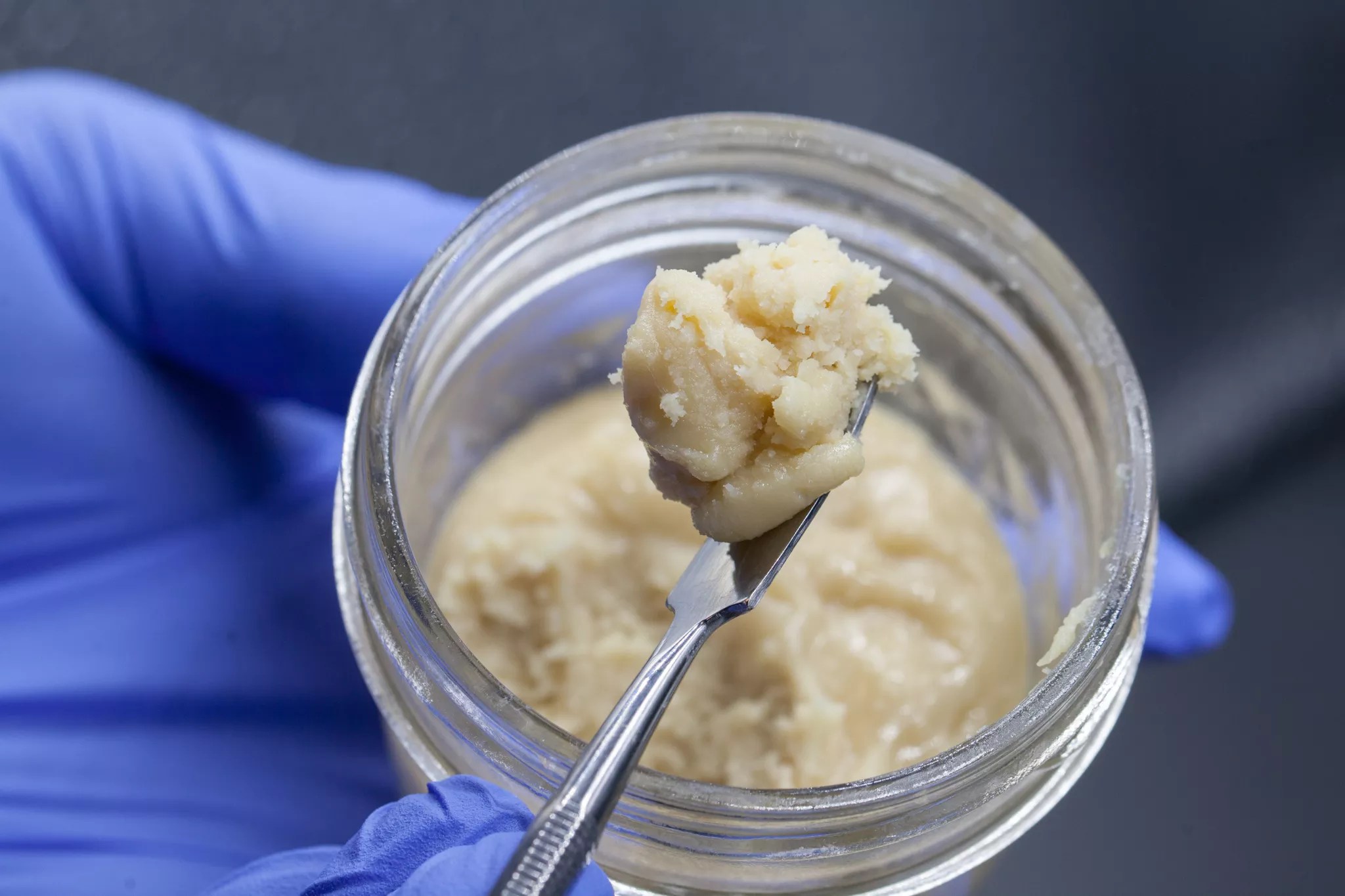
Jacqueline Collins

Audio By Carbonatix
Warning labels, information pamphlets and new packaging were all suggested as options to tighten up commercial marijuana concentrate sales in Colorado, but those possibilities are just the start of a longer conversation.
A working group of state Marijuana Enforcement Division officials and health-care, government, education and pot-industry representatives convened on August 2 to begin discussing the implementation of House Bill 1317, an expansive law that creates new restrictions and mandates for the state’s medical marijuana and marijuana concentrate sectors.
Some provisions of the law don’t fall under the purview of the MED, including state research into the mental-health effects of high-potency THC products and some new rules for medical marijuana physicians. However, there are several regulations that will involve the MED.
During the last legislative session, lobbies representing parents, public educators and health-care representatives pushed for increasing restrictions on teenage medical marijuana patients and concentrate sales, citing data from the Colorado Department of Public Health and Environment showing that the use of extracted marijuana products had more than doubled among teenagers who smoke marijuana from 2015 to 2019, as well as research indicating that THC can impact developing brains up to the age of 25.
Signed by Governor Jared Polis in June after a fast but bumpy ride through the Colorado Legislature, HB 1317 will expand tracking of medical patient purchases, restrict the daily purchase limit of medical marijuana concentrate purchases from 40 grams to 8 (2 grams for patients under 21), and enact tighter packaging and labeling guidelines for both medical and recreational marijuana concentrate products.
While the recreational pot industry eventually supported HB 1317, the medical marijuana community will bear the brunt of most of the law’s new restrictions – and a nineteen-year-old medical marijuana patient has sued Polis for signing the bill into law. But business owners on both sides of the weed aisle are already weary of the new packaging rules.
The bill originally proposed that all concentrated THC products be individually packaged in servings of ten per gram, similar to the way that edibles are currently packaged. After pushback from the pot industry, however, that language was replaced with a directive for the MED to oversee creating new packaging rules, which will take effect in 2022.
“We would like to get away from proposing that you measure this out or include a specific measurement,” said Shannon Fender, public affairs director for dispensary chain Native Roots, during the hearing. “The difference between the purity of the products‚ whatever the [THC] percentage is, it’s going to be a different amount. There is a probability you could encourage people to over-consume if you try to get in this specific measurement.”
Marijuana concentrate can now reach upwards of 90 percent THC, though most extractions sold at dispensaries range from 60 to 75 percent. Dispensary owners and marijuana extractors argue that breaking products down to tenths and twentieths would not only be expensive, but potentially confusing and dangerous for users, as potent THC products are generally consumed in very small amounts relative to the grams they’re sold in.
At the hearing, Fender and the Marijuana Industry Group suggested a QR code directing consumers to warning and dosage recommendations on their phones, but proponents of the new law weren’t persuaded, and neither
were medical marijuana industry advocates for patients living in poverty or in rural areas.
“We have to start somewhere” with packaging, said Henny Lasley, executive director of One Chance to Grow Up (formerly known as SMART Colorado), an organization dedicated to keeping commercial marijuana from children. At the hearing, One Chance to Grow Up and Blue Rising Colorado, a PAC that lobbied for HB 1317, argued that clear labeling or markers detailing marijuana’s mental-health risks should be included on all marijuana concentrate packaging, including vaporizer products.
New purchasing limits for medical marijuana concentrates were also discussed, as HB 1317 allows certain patients with a hardship to buy more than 8 grams per day based on their disability, transportation challenges and proximity to dispensaries. Medical marijuana physician groups and the recreational pot industry want to see doctors given the ability to make exceptions, but Blue Rising fought against the notion, arguing that a doctor recommending marijuana would be inclined to appease a patient rather than consider medical realities.
The MED has more HB 1317 rulemaking hearings scheduled for August 11, 16 and 20, as well as September 14, with ruling recommendations due to the state on November 1.